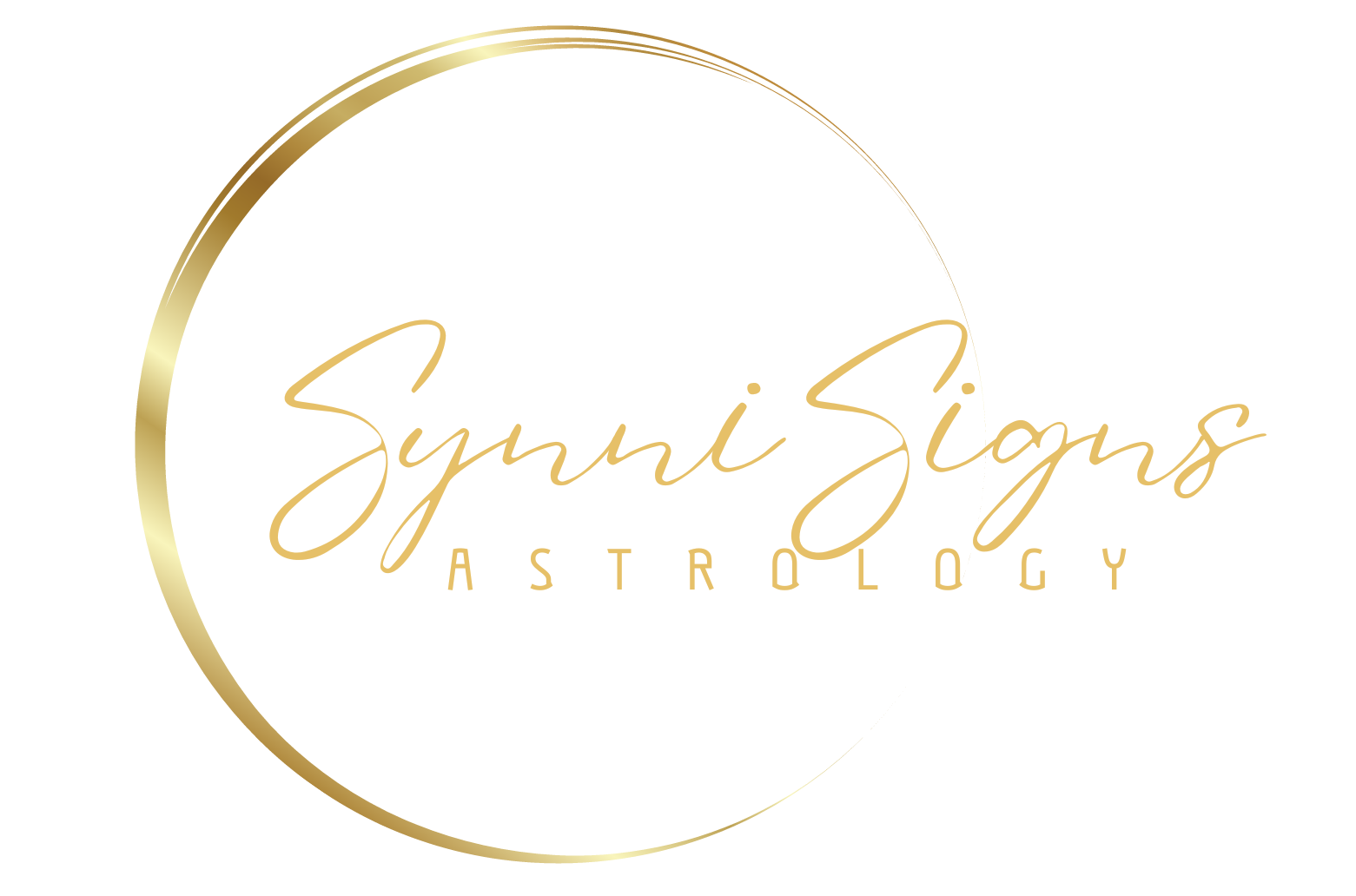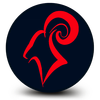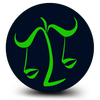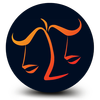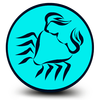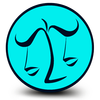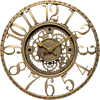
Horary astrology, an ancient segment of horoscopic astrology, enables astrologers to respond to questions by creating a horoscope for the precise moment the question is received and comprehended. Among horary astrologers, there’s a debate over whether to use the location of the querent—the individual posing the question—or the astrologer’s location. Typically, both are in the same locale, but with many astrologers now operating online or via phone, scenarios arise where, for instance, a querent in Australia might email a question to an astrologer in Europe, resulting in a significantly different horoscope. While many European astrologers opt for the querent’s location, traditional English schools have prominent advocates for using the astrologer’s location. Answers to horary questions can range from a straightforward yes or no to more nuanced insights that reveal, for example, the questioner’s motives, others’ intentions involved in the matter, and the choices available.
Despite their name, the Arabic Parts were not originally created by Arab astrologers; rather, they were developed by the Persian astrologer al-Qabisi in the 10th century. However, the Arabic-speaking world played a crucial role in preserving and disseminating al-Qabisi’s works and those of other Persian astrologers to the Western world. This is why these constructs are commonly referred to as the “Arabic Parts” of astrology.

FORTUNA

SICKNESS

MARRIAGE
Approach
In horary astrology, a distinct set of rules guides the interpretation of charts. The moon’s position and aspects take precedence, while the querent, or person asking the question, is represented by the ruler of the sign on the first house cusp. Planetary aspects to the house cusps are highly significant, with particular emphasis on the rulers of those houses. Additional factors such as the lunar nodes, planetary antiscia, and Arabic parts are also considered. When interpreting a horary chart, the subject of the question is assigned to a specific house, such as the sixth house for inquiries about lost pets. For example, if the sixth house cusp falls in Libra, Venus becomes the significator of the lost dog. The condition of Venus in the chart, including its dignity and aspects, provides insights into the animal’s whereabouts.
Classical Considerations
First, determine the exact moment you either posed the question or received it from someone else, along with your location at that time. These details will form the basis of your calculations. Proceed to calculate your chart. Before moving forward with the judgement, there are several fundamental aspects to consider:
Is the Ascendant less than 3 degrees or greater than 27 degrees? If the Ascendant is less than 3 degrees, it may be premature to reach a conclusion; if it is greater than 27 degrees, it may be too late. However, matters concerning new beginnings might still be feasible with an Ascendant under 3 degrees. This does not hold if the querent’s Ascendant is less than 3 degrees or exceeds 27 degrees.
Is the Moon located in Via Combusta? Via Combusta spans from 15º Libra to 15º Scorpio and is considered a malefic and unpredictable influence.
Is the Moon Void of Course? The Moon is considered void of course when it does not form any major aspects before exiting its current zodiac sign. During such times, activities tend not to proceed smoothly. Lilly states that the Moon is void of course if it is not within the orb of applying to a major aspect prior to leaving its sign. However, Lilly concedes that in Cancer, Taurus, Sagittarius, or Pisces, a void of course Moon may still be effective.”
Is the Moon positioned in the final degrees? It may be precarious to evaluate a chart when the Moon occupies the terminal degrees of a sign, particularly Gemini, Scorpio, and Capricorn.”
Is Saturn positioned in the Seventh House? As an astrologer, your ability to judge may be limited or constrained, except if you are the one seeking the answer.”
When the astrologer themselves is the querent, is Saturn positioned in the First House? As an astrologer, your ability to judge may be impaired or limited.
Firstly, determine the ruling planets of the querent and the question. The querent is invariably co-ruled by the Moon, as well as by the ruler of the Ascendant, the Almuten(s) of the Ascendant, and any planetary rulers of the first house. Next, identify the natural ruler for the issue and ascertain which houses are significant in this matter. It may be necessary to rotate the chart; for instance, if inquiring about a partner’s career, instead of examining the tenth house (representing your own career), you would consider the seventh house (representing your partner) as their first house and count ten houses from there. Thus, the seventh house plus ten leads to the fourth house, indicating that matters concerning the partner’s career are governed by the fourth house.”
Rulership of the Planets
Planets are deemed to be under the sunbeams when they reside in the same sign as the Sun and are within 17 degrees. Their influence is diminished in this position. A planet becomes combust when it is in conjunction with the Sun, defined by an orb of 8 degrees, which also weakens its effect. Conversely, planets are considered cazimi when they are within 0 degrees and 17 minutes of the Sun, a position that enhances their strength, unlike being combust. However, the Moon is an exception; it is deemed malefic when in this position as it corresponds to a New Moon.”
Sun: Represents self-expression, vitality, authority, masculine energy, employers, power, ego, and officials.
Moon: Symbolizes emotions, intuition, cycles, home life, nurturing, the public, lost items, short journeys, changes, and the mother.
Mercury: Governs thought processes, communication, speech, business dealings, transportation, contracts, neighbors, youth, students, and office work.
Venus (The Lesser Benefic): Influences love, creativity, beauty, social interactions, gifts, finances, marriage, young women, mothers, spouses, pleasures, and luxury items.
Mars (The Lesser Malefic): Drives action, energy, assertiveness, sexual energy, accidents, conflict, aggression, weapons, and injuries.
Jupiter (The Greater Benefic): Brings luck, growth, opportunities, expansion, abundance, excess, speculation, higher education, long-distance travel, foresight, foreigners, the affluent, and professionals.
Saturn (The Greater Malefic): Imposes duties, responsibilities, challenges, lessons, ambition, discipline, restrictions, delays, poverty, obstacles, paternal figures, mortality, and limitations.
Pars Fortuna (Part of Fortune): Not a planet but an Arabic Part, it signifies income, possessions, wealth, and financial prosperity.
Fixed Stars
Fixed stars can exert influence on an astrology chart when a planet is in conjunction with them, typically within an orb of 1 degree.
Here are some notable fixed stars and their associated influences:
– Caput Algol at 26º10′ Taurus: Associated with failure, difficulties, disaster, and death.
– Alcyone at 00º00′ Gemini: Linked to compassion and disappointment.
– Aldebaran at 9º35′ Gemini: Associated with themes of violence and victory.
– Regulus at 29º50′ Leo: Symbolizes royalty, success, and glory.
– Vindematrix at 9º56′ Libra: Linked to misfortune, war, and widowhood.
– Spica at 23º50′ Libra: Represents success and prosperity.
– Arcturus at 24º14′ Libra: Symbolizes success and prosperity.
– Antares at 9º38′ Sagittarius: Associated with conflict and violence.
– Serpentis at 19º Scorpio (always): Linked to disaster.
– Vega at 15º19′ Capricorn: Signifies success in politics and finance.
– Fomalhaut at 3º52′ Pisces: Influence can be either good or bad depending on its aspects.
– Scheat at 29º22′ Pisces: Associated with failure and difficulties, especially those related to the sea.
The Houses
|
HOUSE
|
NAME
|
MEANING
|
QUALITIES
|
|---|---|---|---|
|
1
|
VITA
|
The querent, personal life and appearance, beginnings, accidents, new projects, length of life.
|
EAST; ANGULAR
|
|
2
|
LUCRUM
|
Finances, values, lost or stolen objects, possessions, potential poverty or wealth, resources, material things desired, business transactions, earnings (work).
|
EAST NORTH-EAST; SUCCEDENT
|
|
3
|
FRATRES
|
Siblings, relatives, neighbours, short journeys, schooling, early education, cars, personal communication, letters, emails, advice, gossip rumours news.
|
NORTH NORTH-EAST; CADENT
|
|
4
|
GENITOR
|
Home, parents, father, domestic issues, buried treasure, land, real estate, inheritances from parents, houses, farms, agriculture, old age, mines, the end of any matter.
|
NORTH; ANGULAR
|
|
5
|
NATI
|
Children, women, luxury, affairs, gambling, hobbies, stocks, romance, pregnancy, elections, entertainment, feasts, eating, drinking, parties, fun, personal creativity, bodies of water, rain, teaching.
|
NORTH NORTH-WEST; SUCCEDENT
|
|
6
|
VALETUDO
|
Health, illness, diseases, injuries, misfortunes, hygiene, healing, daily work, daily routines, pets, small animals, servants, employees
|
WEST NORTH-WEST; CADENT
|
|
7
|
UXOR
|
Partner (marriage and business), lover, divorce, lawsuits, contracts, quarrels, open rivals, competitors, thieves, robbers, dishonours, any unidentified person, the astrologer
|
WEST; ANGULAR
|
|
8
|
MORS
|
Shared resources, death, birth, surgery, transformation, occult, taxes, debts, mortgages and loans, legacies, inheritance from other than parents, other people's money or resources, corporate money, investigations, poverty, suffering, dangers, sleep
|
WEST SOUTH-WEST; SUCCEDENT
|
|
9
|
ITINERIS
|
Long-distance travel, religion, philosophy, education, learning, lawyers, professionals, dreams, divination, wisdom, the arts, public communication, media, publishing
|
SOUTH SOUTH-WEST; CADENT
|
|
10
|
REGNUM
|
Career, calling, mother, superiors, authority, employer, ruler, status, fortune, success, glory, reputation, honours, environment, the weather
|
SOUTH; ANGULAR
|
|
11
|
BENEFACTA
|
Friends, sources of help, protection, riches, presents, good fortune, joy, hopes and wishes, praise, confidence, goals, social activities, group endeavours
|
SOUTH SOUTH-EAST; SUCCEDENT
|
|
12
|
CARCER
|
Loss, imprisonment, secret enemies, retreat and solitude, widowhood, fears, secrets, suffering, afflictions, large animals, hidden life, unconscious thoughts, institutions, hospitalisation, suicide, murder, vagabonds, prostitutes, beggars, charity, drugs and alcohol
|
SOUTH SOUTH-WEST; CADENT
|
The Arabic Parts
The Arabic Parts, also known as lots, are derived by adding and subtracting the positions of planets and other chart features. These were extensively utilized by Arab astrologers during the 8th and 9th centuries, who acquired this knowledge from Babylonian, Egyptian, and Greek astrological traditions. For instance, the Pars Fortuna or Part of Fortune is calculated during the day as Ascendant plus Moon minus Sun, and during the night as Ascendant plus Sun minus Moon. Ancient astrologers held the belief that the Ascendant and the Part of Fortune were pivotal elements of the chart, corresponding to the rising of the Sun and Moon, respectively.
Note: ‘C’ denotes the cusp of the specified astrological house; ‘R’ signifies the ruling planet of the mentioned house; ‘MC’ stands for midheaven in the chart being used; ‘SN’ represents the south node; ‘NN’ indicates the north node; ‘PF’ refers to the Part of Fortune.”
|
PART OF
|
FORMULA
|
INTERPRETATION
|
|---|---|---|
|
Astrology
|
AS+ME-UR
|
This describes astrology's place in the individual's life, modern formula
|
|
Daring
|
AS+MA-SU
|
The Part of Daring is the Part of Mars, signifying dynamic action and all warlike things, especially those involving courage and bravado, plus the sexual relations taking the forms of conquest and overcoming resistance
|
|
Discord
|
AS+JU-MA
|
Opinion strongly held; may reflect an area of challenge to beliefs or actions
|
|
Father
|
AS+SU-SA
|
Additional description of father's qualities; often his actual sun sign
|
|
Female Children
|
AS+VE-MO
|
Self-explanatory
|
|
Fortune
|
AS+MO-SU (Day); AS+SU-MO (Night)
|
Its house represents an area of life where one finds happiness, prosperity and natural tranquillity, expressing innate abilities. It indicates an area wherein the self is easily expressed. Moreover, as the name implies, it signifies the physical health and material well-being of the body, as well as the potential for growth of the soul. Fortune is the significator of wealth.
|
|
Happiness
|
AS+JU-SU
|
The Part of Happiness is the Part of Jupiter, signifying happiness and assistance, the attainment of good things, wisdom, fortune, honour and position, religious and legal matters
|
|
Health
|
AS+MA-SA
|
an additional indicator of physical or mental health, neutral
|
|
Heavy
|
AS+SA-MA
|
The Heavy Part is the Part of Saturn, signifying serious and weighty matters, deep thought, karma, old age, incarceration, land management, inheritances, death and matters to do with the dead, structure, consistency, time, faith and religion
|
|
Friends
|
AS+MO-UR
|
self-explanatory
|
|
Identity
|
AS+SA-MO
|
If you can say "I am this", you understand how to delineate this part
|
|
Karma
|
AS+SN-SA
|
This part shows "fated" happenings
|
|
Love & Concord
|
AS+VE-SU
|
The Part of Love is the Part of Venus, signifying pleasures, desires, relationships and lovemaking in general
|
|
Male Children
|
AS+JU-MO
|
self-explanatory
|
|
Marriage
|
AS+C7-VE
|
Very close relationships, including best friends, romances, some marriages, indicated in "willingness to relate"
|
|
Mother
|
AS+MO-VE
|
additional description of mother's qualities, often her actual sun sign
|
|
Ordinary Intellect
|
AS+ME-SU
|
The Part of Ordinary Intellect is the Part of Mercury, signifying negotiation, buying and selling, ordinary mental activity, meanness of intelligence and intellect, writings, science, contention and enmity
|
|
Passion
|
AS+MA-SU
|
describes intensity of response to life and can sometimes be sexual
|
|
Plays
|
AS+VE-MA
|
all types of gambling and risk-taking behaviour; has been indicated in wins by Jupiter transits, often misnamed in other texts
|
|
Profession
|
AS+MO-SA
|
additional information about career interests and activities
|
|
Property
|
AS+C2-R2
|
things you own, appliances, personal items, your home, almost anything you can buy, sell or make
|
|
Spirit
|
AS+SU-MO (Day); AS+MO-SU (Night)
|
its house signifies the soul and the body (after the Part of Fortune), along with matter of faith and intentions. With regard to health, it signifies the deeper, spiritual sources, rather than the simple material causes shown by the Part of Fortune. Moreover, as the name implies, it signifies the nature of things which are to come, rather than things present
|
|
Sudden Advancement
|
AS+PF-SA
|
self-explanatory
|
|
Travel
|
AS+C9-R9
|
Journeys long or short, by land, air or sea
|
|
Vocation
|
MC+MO-SU
|
Work you love to do; your calling or hobby
|
Further Lots
The discovery of over two dozen lots sourced from Egyptian origins should put to rest the misconception that lots are exclusively Arabic. Many of these lots originate from a text called the Panaretos, attributed to Hermes Trismegistus. While Hermes Trismegistus is a legendary figure lacking historical evidence, any works attributed to him prior to the Middle Ages can be attributed to Hellenistic Egyptian sources or even earlier. The Lot of Fortune, for example, was attributed to Nechepso and Petosiris, a pharaoh and his priest.
Among the lots assigned to planets, the Lot of Fortune was attributed to the Moon, while the Lot of Spirit was linked to the Sun. The Lot of Spirit holds significant importance, second only to the Lot of Fortune. Its formula is straightforward: it mirrors the Lot of Fortune, but with the positions of the Sun and Moon in the formula reversed. Therefore, the formula for the Lot of Spirit during the day is the same as that of the Lot of Fortune during the night, and vice versa. The following formulas should illustrate this point clearly.
Lot of Fortune
Day Births: Fortune = Ascendant + Moon – Sun
Night Births: Fortune = Ascendant + Sun – Moon
Lot of Spirit
Day Births: Spirit = Ascendant + Sun – Moon
Night Births: Spirit = Ascendant + Moon – Sun
For individuals born at night, many have inadvertently been using the Lot of Spirit instead of the Lot of Fortune due to common software and computer services computing it incorrectly. Unlike the physical-plane-based Lot of Fortune, the Lot of Spirit carries strong psychological and spiritual connotations. It pertains to the nature of one’s will and intentions, rather than solely focusing on external events. Additionally, it holds significance in career matters, reflecting more on the individual’s statement about their place in the world. Furthermore, like the Lot of Fortune, the Lot of Spirit also relates to illness, but it seems to address the spiritual underpinnings of illness rather than just the physical aspects. Unlike the Lot of Fortune, the Lot of Spirit isn’t typically used as a first house marker.
The other planets also possess lots, many of which are derived in part from the Lots of Fortune and Spirit.
In the following notation:
– PF represents the Lot of Fortune
– PS represents the Lot of Spirit
Mercury, Lot of Necessity:
Day: Lot = Ascendant + Lot of Fortune – Mercury
Night: Lot = Ascendant + Mercury – Lot of Fortune
Venus, Lot of Eros:
Day: Lot = Ascendant + Venus – Lot of Spirit
Night: Lot = Ascendant + Lot of Spirit – Venus
Mars, Lot of Courage:
Day: Lot = Ascendant + Lot of Fortune – Mars
Night: Lot = Ascendant + Mars – Lot of Fortune
Jupiter, Lot of Victory:
Day: Lot = Ascendant + Jupiter – Lot of Spirit
Night: Lot = Ascendant + Lot of Spirit – Jupiter
Saturn, Lot of Nemesis:
Day: Lot = Ascendant + Lot of Fortune – Saturn
Night: Lot = Ascendant + Saturn – Lot of Fortune
The next group of lots relates to family issues:
Lot of the Father:
Day: Lot = Ascendant + Saturn – Sun
Night: Lot = Ascendant + Sun – Saturn
If Saturn is within 17 degrees of the Sun, use this formula according to the Greek sources:
Day or Night: Lot = Ascendant + Jupiter – Mars
If Saturn is within 17 degrees of the Sun, Arabic sources uses a different formula:
Day: Lot = Ascendant + Jupiter – Sun
Night: Lot = Ascendant + Sun – Jupiter
Lot of the Mother:
Day: Lot = Ascendant + Moon – Venus
Night: Lot = Ascendant + Venus – Moon
Lot of Siblings:
Day: Lot = Ascendant + Jupiter – Saturn
Night: Lot = Ascendant + Saturn – Jupiter
Not all sources reverse the formula for Siblings at night, and I am inclined to agree with those sources that do not. I suggest that one start with the day formula used for both day and night charts. This may seem inconsistent, but there is a principle underlying my position. In any case, only experimentation will tell.
Lot of Children:
Day: Lot = Ascendant + Saturn – Jupiter
Night: Lot = Ascendant + Jupiter – Saturn
Note that this is the inverse of the Lot of Siblings. Here again, some sources do not reverse the formula at night, and I tentatively agree with those that do not. Obviously, persons born in the daytime have no problem here, but persons born at night will have to experiment.
In addition to the previously mentioned lots, there are other specialized lots mentioned in Greek literature, each with its own intriguing significance. The first being the Lot of Basis. As the name suggests, it seems to represent something fundamental, combining the significations of the Lots of Fortune and Spirit. The formula is as follows:
Lot of Basis:
Day or Night: Lot = Ascendant + Lot of Fortune – Lot of Spirit
or Lot = Ascendant + Lot of Spirit – Lot of Fortune
Here, the order of the formula is determined by the shorter arc between Lot of Fortune and Lot of Spirit. If the arc between them is more than 180 degrees, we use Lot of Spirit – Lot of Fortune, and vice versa. Its position is always below the horizon or exactly on the Ascendant or Descendant because the arc between Lot of Spirit and Lot of Fortune can never exceed 180 degrees. This may relate to its signification, as it is always below the earth like a foundation. Additionally, New Moons and Full Moons hold special significance with this lot, as at the New Moon, all three lots are conjunct the Ascendant, and at the Full Moon, they are all conjunct the Descendant.
Lot of Debt:
Day or Night: Lot = Ascendant + Saturn – Mercury
This lot doesn’t seem to function as a first house indicator. While lore about this lot is not abundant, according to the logic of lots, it could signify financial losses or debt wherever it falls in the chart.
Lot of Theft:
Day: Lot = Saturn – Mars – Mercury
Night: Lot = Saturn – Mercury – Mars
Similar to the Lot of Debt, this lot doesn’t serve as a first house indicator and doesn’t contain the Ascendant as a component. It resembles formulas found in the modern Hamburg School of Alfred Witte.
Lot of Treachery:
Day: Lot = Ascendant + Mars – Sun
Night: Lot = Ascendant + Sun – Mars
There’s limited information available about this lot, sourced from Vettius Valens.
Lot of Exaltation:
Day: Lot = Ascendant + 19 Aries – Sun
Night: Lot = Ascendant + 3 Taurus – Moon
This lot is derived from the exaltation degrees of the Sun and Moon. It’s connected to the births of eminent and famous people.
Lot of Being in a Foreign Land:
Day or Night: Lot = Ascendant + Mars – Saturn
Lot of Accusation:
Day: Lot = Ascendant + Mars – Saturn
Night: Lot = Ascendant + Saturn – Mars
The Lot of Being in a Foreign Land doesn’t switch at night, unlike the Lot of Accusation. The former indicates exile-like circumstances, while the latter suggests areas of life where accusations may occur, potentially leading to failure, dangers, or downfalls.
Lot of the Destroyer:
Day: Lot = Ascendant + Moon – Ruler of Ascendant
Night: Lot = Ascendant + Ruler of Ascendant – Moon
In the formula above, ‘Ru’ stands for the ruler of the Ascendant. This point relates to death, specifically the manner of death. It’s essential to approach the use of this lot with caution, as we have limited systematic information about its application.
In addition to the general lot of children, Vettius Valens provides two other lots specifically related to children: a lot of sons (i.e., male children) and a lot of daughters. These are as follows:
Lot of Sons:
Day or Night: Lot = Ascendant + Mercury – Jupiter
Lot of Daughters:
Day or Night: Lot = Ascendant + Venus – Jupiter
